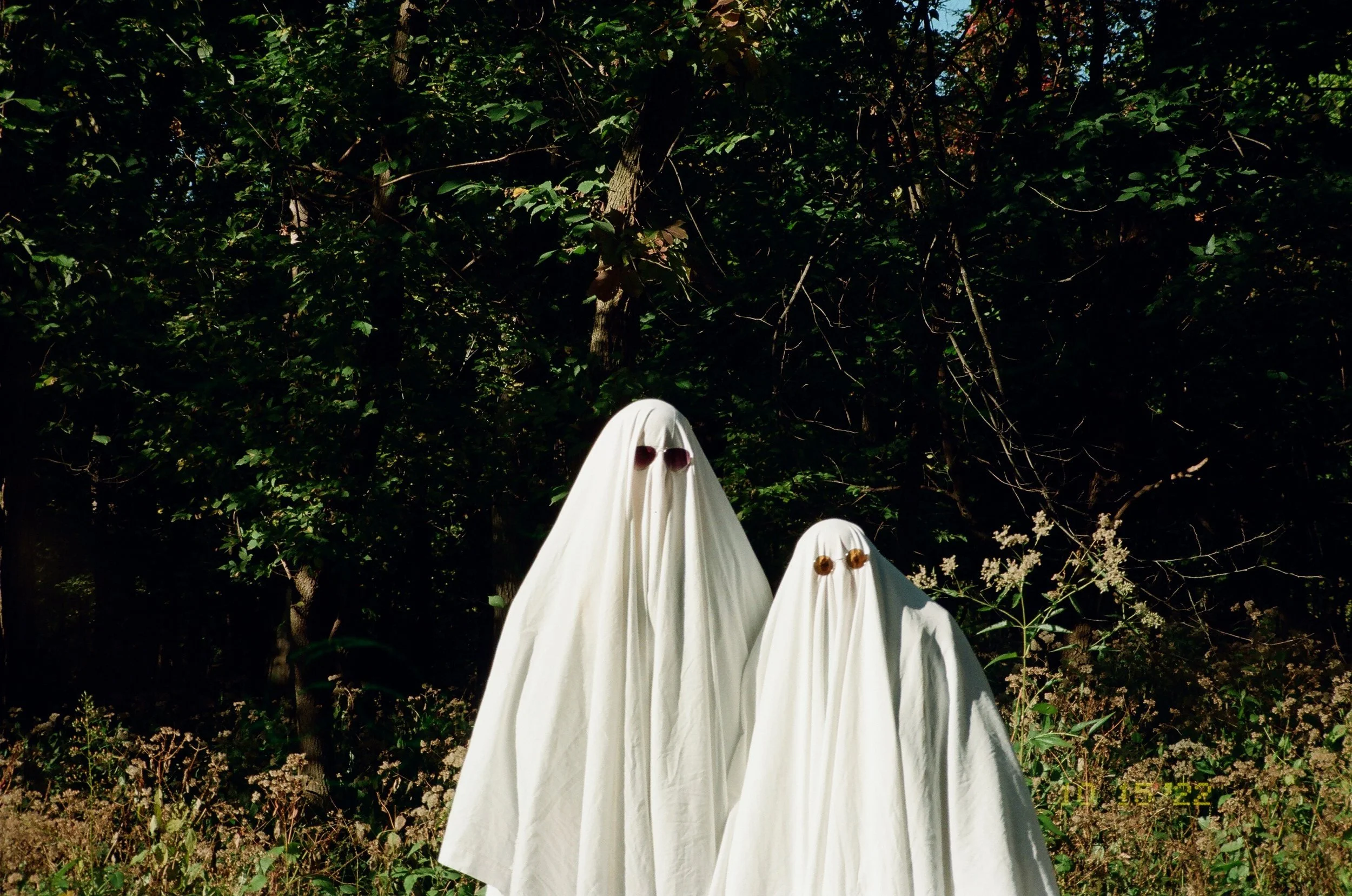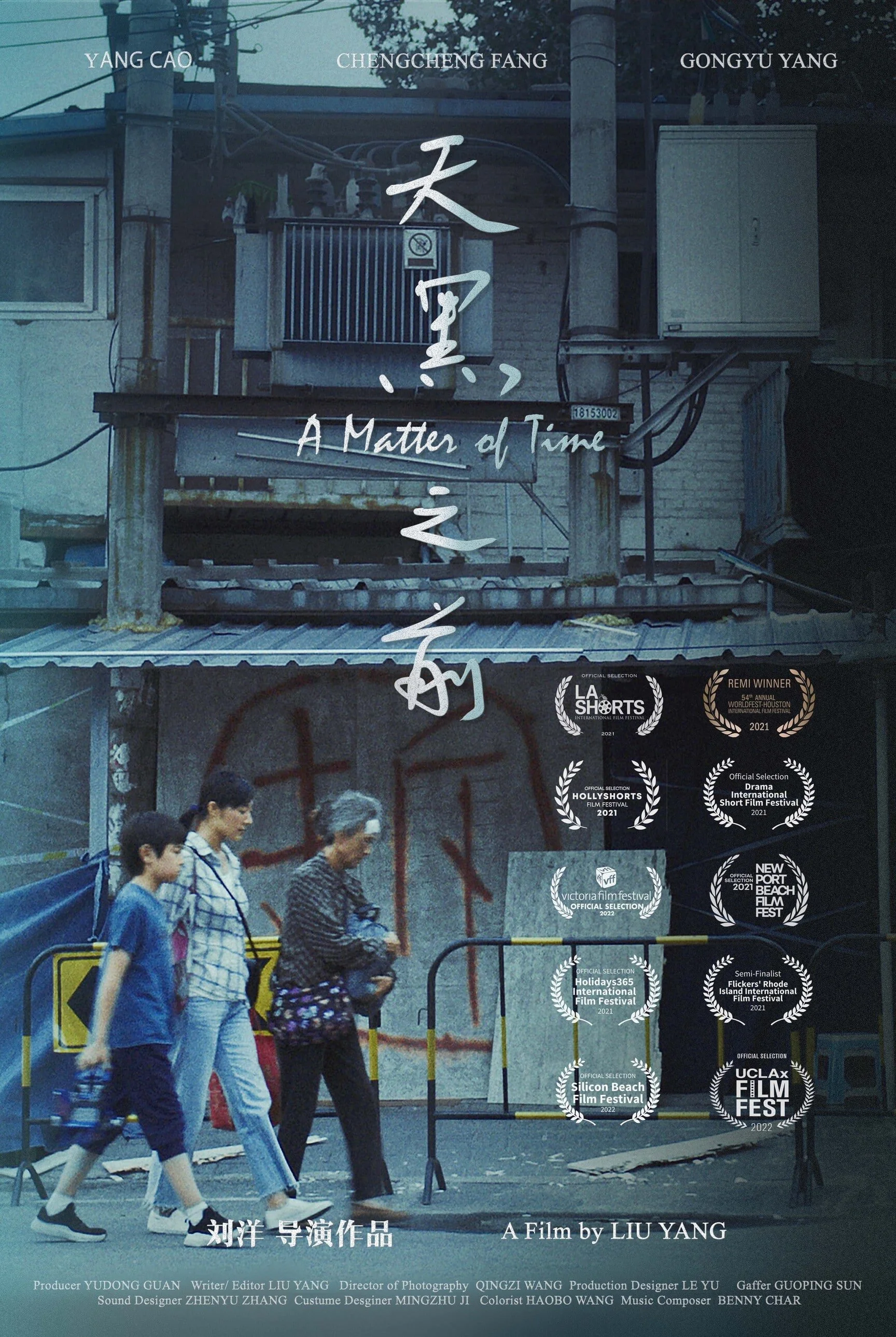10 Questions with Flo Yuting Zhu
Flo Yuting Zhu (b. 1997) stands out in the contemporary performance and film art scene for her distinctive approach that probes the interplay of absence and presence. Originally from Shanghai and now based in London, Zhu navigates the shifting boundaries between the 'witnessing' and the 'witnessed', drawing viewers into experiences that hover between familiarity and disruption, often conveyed through moving images, algorithms, or live interventions. Her works often challenge the audience's perception by recontextualising everyday digital forms such as vlogs, livestreams, and horror trail cams. Zhu creates an artistic language that both appropriates and reinterprets the conventions of mass media, making her work both accessible and provocatively disorienting.
Zhu's practice is not limited to traditional modes of production. Instead, it thrives on spontaneity, emerging through dynamic collaborations with co-creators who may be human or machine. Her process is informed by a combination of found materials and generative responses, which merge the organic with the synthetic to yield unanticipated results. The tension between these elements fosters a unique environment where the boundaries between technology, performance, and the human experience dissolve.
Having exhibited her work at notable festivals and events like Now Play This at Somerset House (2022) and the London Short Film Festival (2024), Zhu has garnered critical acclaim, including the Jamie Iddon Award from Blast Theory (2023). Her practice continues to evolve, inviting audiences to explore the liminality and immediacy at the heart of her artistic explorations.
Flo Yuting Zhu - Portrait
ARTIST STATEMENT
“I am a mixed-media performance and film artist. My work seeks the translation of absence/presence in moving images, computer algorithms, and site-specific actions. Central to my practice is an investigation of the layered dynamics between the 'witnessing' and the 'witnessed', often through the appropriation and subversion of popular art forms such as vlogs, livestreams, street games, and homemade horror videotapes. My research and process are deeply rooted in found materials and generative responses, often developed in real-time with my co-creators, who are sometimes human, and sometimes machine. Regardless of the medium, I always value the emergent, the liminal, and the instantaneous.”
— Flo Yuting Zhu
False Witness, artist film, 7 mins, 2023–24 © Flo Yuting Zhu
INTERVIEW
Your work spans multiple mediums—performance, film, and generative art. But how did you first get interested in art? What inspired you to follow this career path?
My earliest artistic encounter was with theatre. It cultivated an urge in me to pursue ways of seeing and actions that transform one's outlook on the mundane. Seeking ways to make theatre in alternative spaces with unusual media turned into my first exploration of presence and absence in my performances. I enjoyed the intimate yet distanced relationship with live audiences. I soon saw the possibilities of remixing even more media and technologies in my work, and responding to the post-disciplinary direction that the art world was calling for.
How did your background in Shanghai and your move to London influence your artistic journey and the diverse range of mediums you explore?
Moving from Shanghai to London put me in a state of being transient, migrant, and in-between. The digital media I consumed daily became a link back to the familiar culture and community, especially during a time of crisis from 2020 to 2022. In a way, my sense of self was diffused in this digital connection. Gradually, I found myself trying to transplant my digital self into the physical spaces in London, trying to absorb and blend into its peripheral urban structures, incidental surveillance, and isolation. I tried live-streaming a journey of me running late from a train station to the stage/screen that turned into a pixelated illusion (Running a Little Late). I'm also fascinated by the wet marshy bushes hidden amidst London in less trodden places, and have made two works where I either inserted myself as paper-thin shadows by augmented reality (7 Days), or as animalistic ghosts captured by trail cameras (False Witness). I would say a diasporic awareness for sure permeates my work.
False Witness, artist film, 7 mins, 2023–24 © Flo Yuting Zhu
False Witness, artist film, 7 mins, 2023–24 © Flo Yuting Zhu
You incorporate everyday digital forms like vlogs, livestreams, and trail cams in your multimedia practice. What draws you to these media, and how do you use them within a fine art context?
I'm drawn to these forms and found footage because, like found objects in sculpture, they are raw, unfiltered materials that capture messy, everyday processes. They're perfectly designed for a single person without support to create images with full agency but, at the same time, require the presence/attention of an audience to come alive. I also find these media carry a haunting quality. Glitches and artefacts can create surprising moments, injecting illusion in a format that is branded for authenticity, which challenges the viewers' trust and default allegiance. These media aren't simple windows. They feel like portals to me, merging digital and everyday, performers and audience. Even when there's no direct interaction, the viewer's presence 'clings' to the work. They make a fertile ground to probe the layered yet volatile relationship between the witnessing and the witnessed.
As you mention in your statement, your work often revolves around the concepts of "witnessing" and "witnessed." Can you expand on how these concepts shape the narratives or experiences you create in your performances and films?
As mentioned, I often feel that my identity is diffused in my digital footprints and journeys ever since I started to 'exist elsewhere' from home. I think it started with this anxiety that data is prone to obsolescence, alteration, and erasure, and therefore, the fear of getting my presence lost. In China, and I believe in many other parts of the world, this is a shared anxiety among my generation of internet users. We became used to this new, discreet language of euphemisms and placeholder symbols in order to sustain the messages that'd otherwise be easily censored—a mode of communication that depends on the viewer's willingness to deduct.
This two-way relationship got me to question the boundary of the witnessing/witnessed, or for that matter, the agency of evidence—how much the media fragments used to construct a story can 'answer back' and leave an imprint on the viewer, almost imposing themselves as active participants in the conveyed message? In my recent work False Witness, for example, I imitated the look of 'found footage' horror films—a genre heavily dependent on the viewers' trust and participation—and assembled an investigative story of a disappearance using unrelated, augmented evidence that came together by random sequence. Anyone can conceive their own version of what they saw happen as long as they're willing to participate in the discreet language of ambivalence. To me, the purpose of breaking the expectations around the witnessing/witnessed allows the creation of a faux narrative, an inside joke, a silent allegiance between me and my audience—and ultimately, a defiance against erasure.
False Witness, artist film, 7 mins, 2023–24 © Flo Yuting Zhu
Regarding your practice, collaboration seems to be an integral part of your work, both with humans and machines. Could you share more about your creative process and how these collaborations shape the outcome of your works?
I'm heavily influenced by the history of generative art as well as the Fluxus tradition of live art. In both, releasing part of the control and authorship over the process is essential. Often, I'd start a project with a list of set visions, then introduce either codes and machines or human responses to grow randomness, extract new directions from the process, and finally present it live to put it under the test of more precariousness. It isn't easy—I often struggle to relinquish my dictatorship as an artist but am always stimulated when I do. I believe the process is what allows organic forms and unexpected responses to emerge in the moment, encapsulating a piece of the here and now.
Your use of algorithms and generative responses adds a unique layer to your art. How do you see the role of technology evolving in your future work, especially in terms of creating immersive or participatory experiences for audiences?
I'd like to experiment more with performing with algorithms, especially with audio-visual programming. For example, multi-camera mixing can be used in interaction with live sound-making. With every piece of artefacts on stage/in frame interconnected with each other through data and reactions, I see a borderless, centerless, agenda-less small world come into being. Everything bleeds into one another. Technology feels kind of like adrenaline in my work, used to activate objects and footage around me. I can record my spaces, gestures, routines, and lived experiences, and then I can use technology to brew mutual reactions. The liveness and spontaneity ensure every viewer is a co-owner of their experienceof the night.
Speaking of technologies, in recent years, we have witnessed quite a few changes in the art-making process and mediums. Do you feel threatened by new technologies, such as AI, or eager to explore more of its potential?
I don't feel threatened by AI; I see it as a continuation of the generative algorithms that artists have explored since the 1960s. I admit I sometimes anthropomorphise the technologies too much, but I'm always curious to probe 'their' modes of thinking. For instance, when using video-generation AI, I'd cut the process midway to see the shapes-in-progress in order to observe its unique strategies or perceptions that lead it towards the expected result (usually an imitation of human-made forms). It's like slicing the rising dough open to observe the yeast at work. Or sometimes I'd 'hack' their use, not using them for their intended purpose and seeing their behaviours emerge in between framed zones. They help me question and unlearn the norms.
False Witness, artist film, 7 mins, 2023–24 © Flo Yuting Zhu
Ultimately, what would you like to communicate with your work?
An emotional resolution for existing in the in-betweenness.
Are there any new themes or mediums you're excited to explore? How do you envision your work evolving in the next few years?
I've been thinking of living off-grid in the near future and exploring performance in total isolation, creating work just for the empty, overlooked spaces around me. I'd document this remote lifestyle, becoming a ghostly figure hidden in the tall grass and dirt—like spectres in horror media, but without the shock of jump scares. Instead, I'd blend quietly into the environment, footage, and recordings. Perhaps I'm drawn to tuning in and maximising the 'volume' of my liminal, diasporic conditions and seeing what emerges out of it.
Lastly, what are you working on now? And where can our readers see your work next?
I'm working on building an alternative mobile screening routine for the UK canals. Maybe you'll see my work in passing, projected onto the bricks under a quiet bridge.
Artist’s Talk
Al-Tiba9 Interviews is a promotional platform for artists to articulate their vision and engage them with our diverse readership through a published art dialogue. The artists are interviewed by Mohamed Benhadj, the founder & curator of Al-Tiba9, to highlight their artistic careers and introduce them to the international contemporary art scene across our vast network of museums, galleries, art professionals, art dealers, collectors, and art lovers across the globe.



















